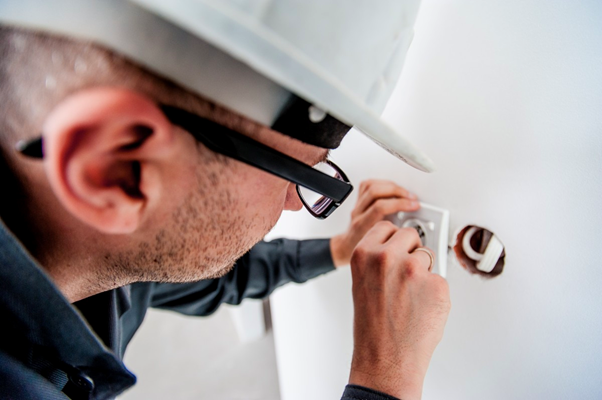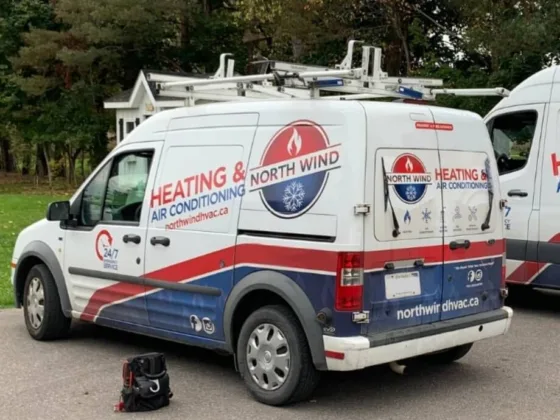Are you ready to embark on your journey toward homeownership? Before taking that exciting leap, it’s crucial to understand the importance of a home inspection.

In this section, we’ll shed light on the role of a home inspector, explain the purpose and scope of a thorough home inspection, and set the stage for a comprehensive evaluation of your dream home.
Owning a home is a significant milestone, but it also comes with responsibilities. One crucial step that often goes unnoticed or underestimated is a home inspection.
Don’t let the excitement overshadow the importance of this process! In this article, we will delve into what to expect from a home inspection and why it is an absolute necessity. So, grab a cup of coffee and get ready to uncover the hidden gems of a home inspection!
What is a Home Inspection?
A home inspection is much more than a routine check-up. It’s a meticulous process that provides invaluable insights into the condition of a property. Think of it as a detective-like investigation, uncovering hidden details and potential issues that could impact your investment.
During a home inspection Denver, a qualified and experienced inspector thoroughly examines the property’s structure, systems, and components. From the foundation to the roof, electrical systems to plumbing, every nook and cranny is scrutinized to ensure there are no hidden surprises.
The primary purpose of a property inspection. is to provide you with a comprehensive understanding of the property’s current condition. It empowers you to make an informed decision about your potential investment, whether you’re buying or selling a home.
Read Also :
By identifying any existing or potential issues, home checking arms you with the knowledge needed to negotiate repairs, request concessions or even reconsider your decision if the findings are beyond your comfort zone.
Furthermore, a property evaluation sets the stage for a smoother homeownership experience. With a thorough evaluation of your dream home, you can prioritize necessary repairs, plan for maintenance, and budget accordingly, ensuring your new abode remains in tip-top shape.
The Hidden Dangers: Why You Need a Home Inspection
Buying a home is an exciting journey, filled with dreams and possibilities. However, beneath the surface of those beautifully staged interiors and freshly painted walls, there may be hidden dangers that can turn your dream into a nightmare.
That’s where a thorough residential survey becomes your shield of protection, revealing the potential pitfalls lurking behind the façade. In this section, we will shed light on the importance of a home inspection, highlighting the reasons why it is a critical step in the home-buying process.
Protecting Yourself from Unforeseen Repair Costs and Major Headaches:
When you set your sights on a potential home, it’s easy to be captivated by its charm and apparent perfection. But appearances can be deceiving. Behind those flawless finishes, there could be a multitude of issues that may not be immediately visible to the untrained eye.
A professional evaluator brings to light any underlying problems that may exist, such as faulty wiring, plumbing issues, or hidden structural damage.
By investing in a comprehensive home inspection in Denver, you can save yourself from the financial burden of unforeseen repair costs.
Identifying these issues before finalizing the purchase allows you to negotiate repairs or adjust the sale price accordingly, ensuring you don’t end up shouldering the burden of repairs that should have been the responsibility of the seller.
Unveiling the Truth Behind Cosmetic Touch-Ups and Staged Appearances:
Sellers often go to great lengths to make their homes appear flawless, employing cosmetic touch-ups and staging techniques to create an inviting atmosphere.
While these tactics may enhance aesthetic appeal, they can also serve as a clever disguise for underlying problems. A fresh coat of paint or strategically placed furniture can easily divert attention from potential issues that lie beneath the surface.
A professional home inspection goes beyond the superficial, scrutinizing every nook and cranny of the property. It reveals the true condition of the home, offering an objective assessment of its structural integrity and functional systems.
By conducting a thorough inspection, you can gain a clear understanding of the property’s true condition and make an informed decision about its purchase, rather than being swayed by its superficial charm.
When it comes to buying a home, ignorance is not bliss. The hidden dangers lurking beneath the surface can pose significant risks to your financial well-being and peace of mind.
When you hire a residential evaluator, you protect yourself from unforeseen repair costs and major headaches. It allows you to negotiate repairs or adjust the sale price, ensuring you don’t end up shouldering the burden of hidden issues.
Don’t let the allure of a perfectly presented home cloud your judgment. Take the necessary steps to reveal the hidden dangers and make an informed decision that sets the foundation for a safe and secure future in your new home.
The Inspection Process: What to Expect
When it comes to inspection, understanding the process can help you prepare and make the most of this crucial step in your home-buying journey.
In this section, we will walk you through the step-by-step procedure of a home inspection, highlighting the key areas that will be thoroughly examined.
Additionally, we will provide insights into the inspector’s checklist and the tools they use to ensure a comprehensive assessment of the property.
Step 1: Scheduling and Preparation
Once you’ve engaged the services of a professional home inspector, you’ll schedule a convenient time for the inspection to take place.
It’s important to ensure that both you and the seller can be present during the inspection. This allows for better communication and the opportunity to ask questions directly to the inspector.
Before the inspection, it’s advisable to gather any relevant documentation about the property, such as previous inspection reports, repair records, or warranties. This information can provide valuable insights and help the inspector focus on specific areas of concern.
Step 2: Exterior Assessment
The property evaluation process typically begins with an assessment of the property’s exterior. The inspector will carefully examine the roof, gutters, downspouts, siding, windows, and doors.
They will be on the lookout for signs of damage, wear, and tear, or inadequate maintenance. The inspection may also include an evaluation of the grading and drainage around the property to ensure water is effectively directed away from the foundation.
Step 3: Interior Inspection
Moving inside the property, the inspector will meticulously examine various components. This includes but is not limited to the electrical system, plumbing, heating and cooling systems, insulation, ventilation, and structural elements.
They will check for code compliance, proper functioning, and signs of potential issues. Special attention will be given to areas prone to problems, such as bathrooms, kitchens, basements, and attics.
Step 4: Assessing Safety Concerns
The safety of the occupants is a top priority during a home inspection. The inspector will be on the lookout for potential safety hazards, such as exposed wiring, faulty electrical outlets, unstable staircases, or inadequate fire safety measures.
They will assess the overall safety of the property and provide recommendations for necessary improvements or repairs.
Step 5: Tools of the Trade
A professional home inspector utilizes various tools to ensure a thorough evaluation of the property. These tools may include a moisture meter to detect hidden leaks or water damage, an infrared camera to identify insulation issues, a circuit tester to assess electrical systems, and a ladder to access the roof and other high areas.
These tools enable the inspector to go beyond what is visible to the naked eye and provide a comprehensive analysis.
Step 6: Inspection Report and Recommendations
After completing the inspection, the inspector will compile a detailed report outlining their findings. This report will include descriptions of any identified issues, their severity, and recommendations for repairs or further evaluations.
It’s crucial to review the report carefully and seek clarification on any points that are unclear. This information will help you make an informed decision regarding the property purchase and negotiate with the seller if necessary.
Conclusion
Congratulations! You are now equipped with the knowledge and understanding of the vital role a property appraisal plays in your homeownership journey. Don’t let the excitement blind you; be a smart and savvy buyer.
Remember, a thorough home inspection is not just an expense; it’s an investment in your future. So, whether you’re a first-time homebuyer or a seasoned homeowner, prioritize the peace of mind that comes with a professional real estate assessment.
“It’s not just about buying a house; it’s about finding a home you can truly cherish.”










